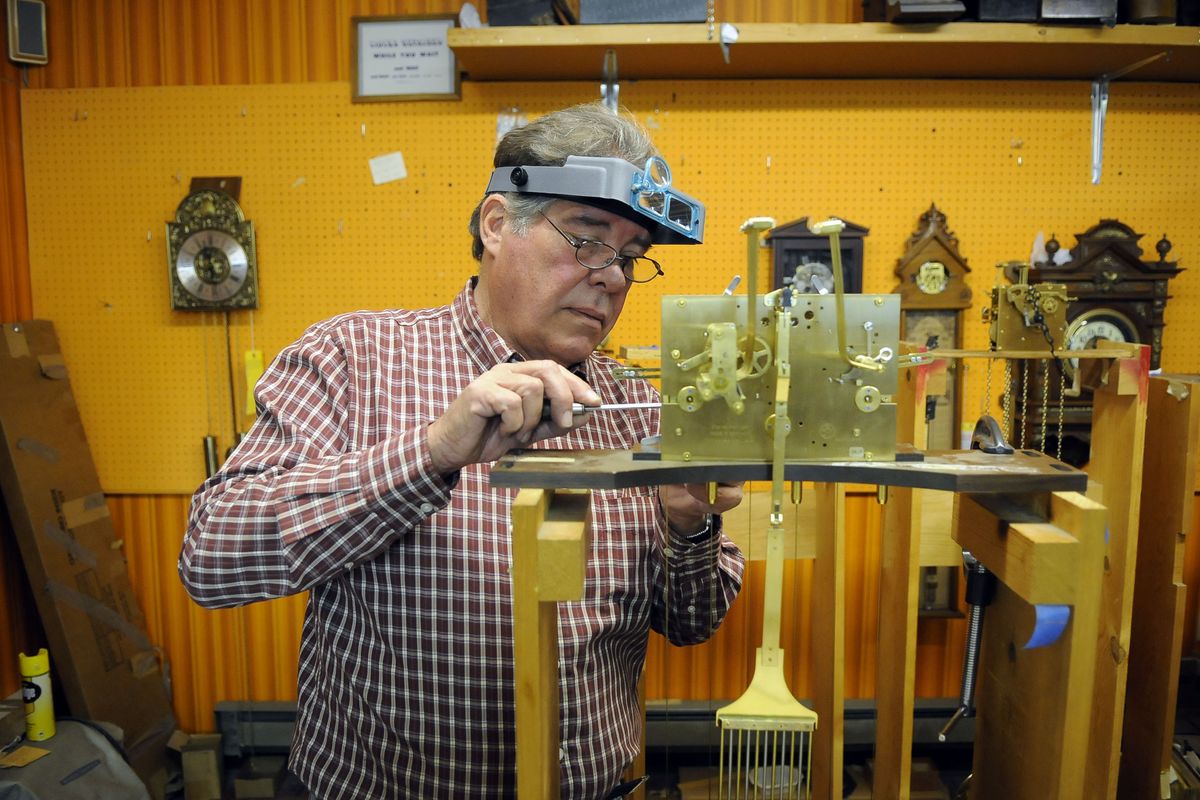Spokane clock shop winds down
Closing its doors after more than 55 years, Larsen’s leaves legacy

Time runs out for a landmark Spokane business today, when Larsen’s Clock Center closes forever.
It takes awhile for a good mechanical clock to wind down, and so it was for this venerable shop on East Third Avenue following the death April 5 of David Larsen, a master clock repairman, antique clock restorer and horologist.
“His legacy was the repair and good keeping of grandfather clocks,” said Leo Tracy, who worked for Larsen for the past five years.
Tracy and amateur horologist Nat Williams have spent the past several months finishing repairs and helping put Larsen’s affairs in order.
Amid the ubiquitous tick-tock of antique grandfather clocks staring out toward the shop floor, Tracy and Williams spoke of their friend with a reverence for a master craftsman and teacher.
Larsen learned clock repair from his father, William, who was self-taught.
When the elder Larsen blasted space for his shop out of the basalt rock circa 1953, he sent his son into the street to check for cars before setting off the dynamite.
In the early years, the Third Avenue Café occupied the ground floor and Larsen’s clock repair the upstairs.
In 1976, David Larsen took over, running the business until cancer took the upper hand last December, said Larsen’s wife, Marie.
“He learned how to restore and refinish these clocks to an art,” Marie Larsen said. “We would spend months and months on a single clock to get it mint.
“Not only could he fix the inside, he could make the outside beautiful,” she said, “and create a real timepiece that was a treasure.”
David Larsen met thousands of people from all over the Northwest during his travels to set up and repair the clocks he sold out of the shop.
There was a time when husbands would coax wives out their homes while Larsen came in to set up a fine grandfather clock as a Christmas, anniversary or birthday gift.
But as wages failed to keep pace with inflation and cheap digital replaced fine analog, Marie Larsen said, people stopped buying grandfather clocks.
And as master clock repairmen died off, fewer young people emerged to learn the trade.
“There are only a handful of people in this town that can do it,” she said, noting particularly Walter Zimke’s Clock House on Garland Avenue.
At Larsen’s on Tuesday, customer Carol Turnbow dropped by to pay her respects.
Turnbow trusted only Larsen to move her behemoth “nine-tube, Elliot movement” grandfather clock.
Over time, she learned to think of him as a friend as well as a craftsman.
“There’s not another like him in the Northwest,” Turnbow said. “That’s something that is lost forever.”